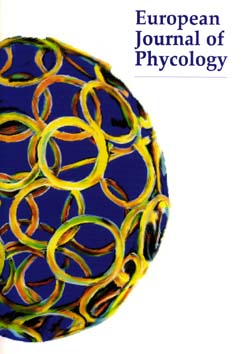No CrossRef data available.
Article contents
British Phycological Society Presidential Address 1999. From algal culture to ecosystem; from information to culture
Published online by Cambridge University Press: 01 August 1999
Abstract
Presidential addresses pose problems. Should one review some area or report a new piece of research; or should one be less predictable? I have chosen the latter, inspired by a BBC radio talk given by Sir Peter Medawar (1964). The talk, ‘Is the scientific paper a fraud?’, introduced a series about how scientific work is really done. Medawar, a biologist and Nobel Laureate, concluded that the scientific paper is a fraud because it misleads the reader, indeed generally lies about the making of scientific discoveries, which are usually presented as well-planned, objective, logical and dispassionate. Scientists, he wrote ‘should not be ashamed to admit, as many of them apparently are ashamed to admit, that hypotheses appear in their minds along uncharted byways of thought; that they are imaginative and inspirational in character; that they are indeed adventures of the mind.’
There followed a series of talks by the likes of Otto Frisch, Edward Bullard, Tom Cottrell and R. V. Jones which amply demonstrated Medawar's conclusions. Finally there was a summary by a historian and philosopher, J. W. N. Watkins (1964), which commented on the conventional style (‘didactic dead-pan’) of scientific papers: ‘if natural scientists … took to writing in a candid, uncensored, autobiographical way, setting out their ideas in their natural order, didactic dead-pan would gradually fall into discredit outside science too. A gratuitous barrier to mutual comprehensibility would have faded away.’ We should heed these words at a time when science has never been so successful in developing understanding of natural phenomena; but a time also when it has abysmally failed to retain public confidence, partly through alienation with its jargon, partly through the arrogance of some of its practitioners, and partly through the suspicion which harnessing of science for exploitative interests naturally brings.
I have a story to tell about how ideas have developed in understanding the role of algae in shallow freshwater ecosystems and I shall tell it in a way that Medawar and Watkins would have approved of. Recently I received a questionnaire asking me which of several things determined what research I do. It had much of the standard terminology of bureaucrat-driven management: Foresight exercise; Competitiveness; Research assessment exercise; Patents; Grant income. It was redolent with the terminology of money, power and influence, none of which have much relevance to the research I do or why I do it. I think that for me, at least, doing research is one way of understanding myself, and my needs, and therefore, possibly, the needs of others. What I do, how I do it, and how I interpret the data are functions of my past experience and of lucky opportunities that have arisen. They have little to do with forward planning and I do not believe that I am unusual in any of this.
- Type
- Presidential Address
- Information
- Copyright
- © 1999 British Phycological Society




